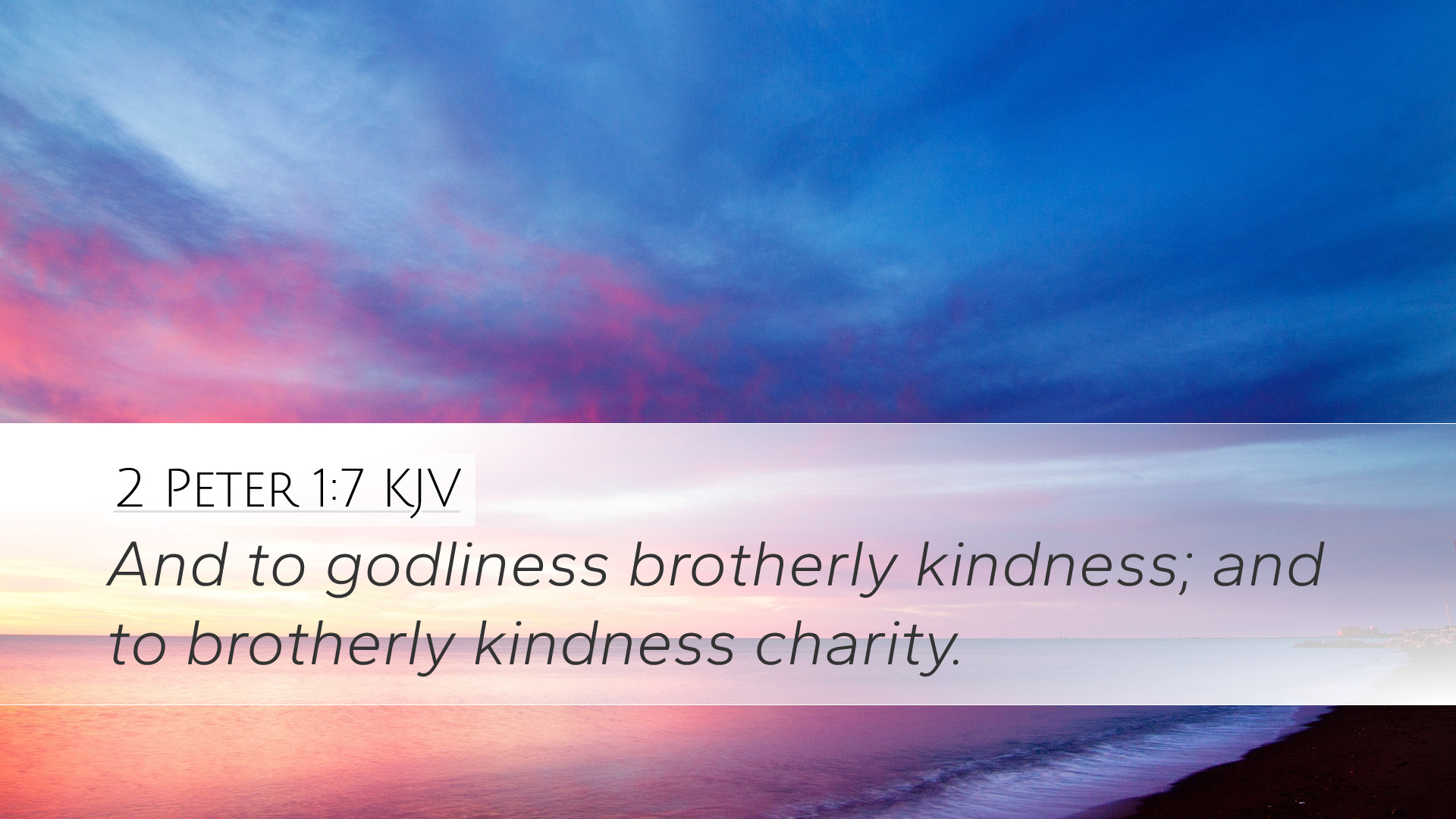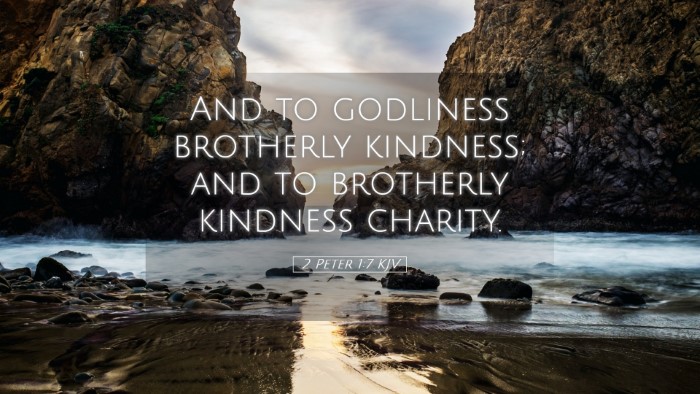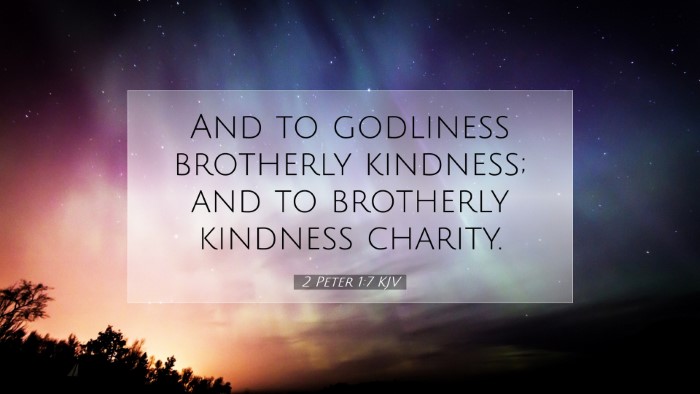Old Testament
Genesis Exodus Leviticus Numbers Deuteronomy Joshua Judges Ruth 1 Samuel 2 Samuel 1 Kings 2 Kings 1 Chronicles 2 Chronicles Ezra Nehemiah Esther Job Psalms Proverbs Ecclesiastes Song of Solomon Isaiah Jeremiah Lamentations Ezekiel Daniel Hosea Joel Amos Obadiah Jonah Micah Nahum Habakkuk Zephaniah Haggai Zechariah Malachi2 Peter 1:7
2 Peter 1:7 KJV
And to godliness brotherly kindness; and to brotherly kindness charity.
2 Peter 1:7 Bible Commentary
Commentary on 2 Peter 1:7
Verse: “And to godliness, brotherly kindness; and to brotherly kindness, charity.”
Introduction
The epistle of 2 Peter emphasizes the importance of spiritual growth and the qualities that should characterize a believer's life. In 2 Peter 1:7, we come across a powerful exhortation that connects godliness to brotherly kindness and charity. This verse serves as a climactic conclusion to Peter's discourse on the virtues that believers must strive to cultivate in their lives.
Exegesis of the Text
This verse is part of a larger context where Peter outlines a series of qualities that a Christian should develop, beginning with faith and culminating in love (charity). The systematic building from one virtue to another suggests a progression in spiritual maturity.
Godliness
Matthew Henry notes that godliness is primarily about reverence for God, leading one to live a life aligned with His will. This foundational virtue effects a transformation in the believer’s relationship with God, consequently guiding their behavior toward others.
Brotherly Kindness (Philadelphia)
The term “brotherly kindness” or “Philadelphia” signifies the affectionate love that should exist among family members, which Peter extends to the community of believers. Albert Barnes emphasizes that such kindness must be cultivated as a means of strengthening the unity of the church. It encourages believers to act in love towards their fellow believers.
- Application: This kindness is not merely an emotional sentiment but should manifest in tangible actions, both in private and public settings.
- Community Importance: The church is a family, and fostering this closeness will present the true nature of Christ to a watching world.
Charity (Agape)
Following brotherly kindness, the text progresses towards “charity,” which corresponds to the Greek term “agape.” Adam Clarke elucidates that this kind of love transcends ordinary affection and depicts an unconditional, sacrificial nature of love that seeks the well-being of others without expecting anything in return.
- Nature of Agape: It is the highest form of love, signifying a dedication to God and others that reflects Christ's love for humanity.
- Practical Expression: Agape can be visualized in actions such as forgiveness, long-suffering, and helping those in need, thus reminding believers of the overarching goal of Christian conduct: to emulate Christ.
Theological Implications
This progression of virtues articulated in 2 Peter 1:7 encapsulates a fundamental truth about the Christian journey—growth in holiness and virtue leads to deeper relationships with God and fellow believers. The linkage between godliness, brotherly kindness, and charity signifies a holistic approach to spiritual formation.
Matthew Henry further points out that these qualities must be pursued actively; they are not merely automatic by-products of one's faith but require diligence and intentionality.
Conclusion
As leaders, scholars, and students of the Word reflect upon this verse, it serves as a reminder that genuine faith expresses itself through action—love is the supreme virtue that must characterize a believer's life. Thus, the call to brotherly kindness and charity is ultimately about embodying the kingdom of God in a way that brings glory to Him and draws others toward Him.
In a world fragmented by divisions and strife, the virtues of godliness, brotherly kindness, and agape love have the power to transform communities and relationships, echoing the heart of the gospel. Let us pursue these qualities earnestly as we seek to reflect Christ’s love in every aspect of our lives.


